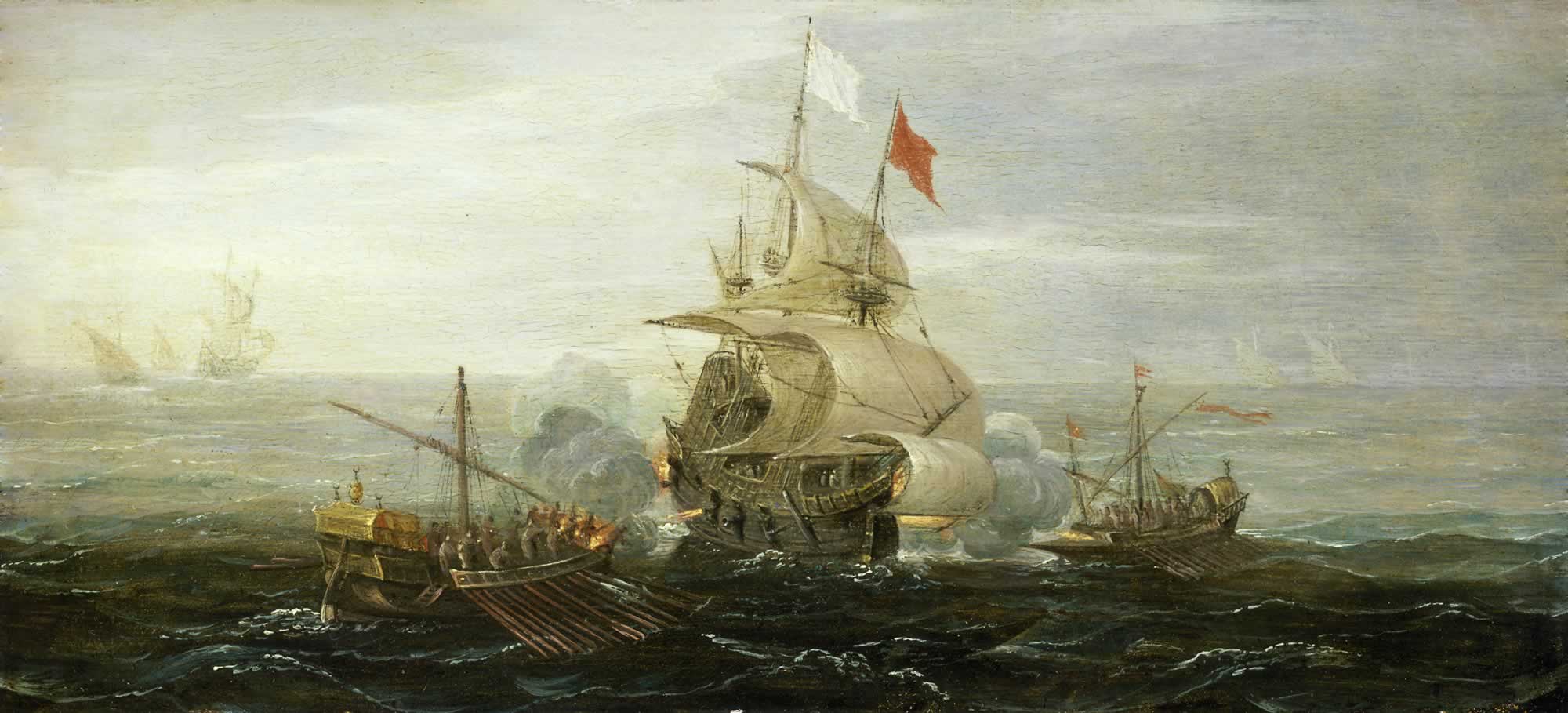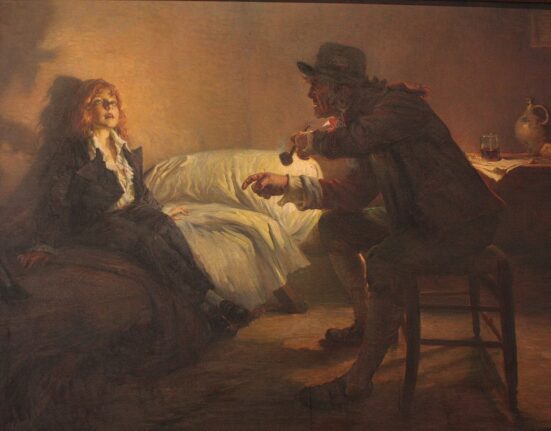Rachel Schmidt was born in Carlisle, Pennsylvania in around 1760. Very little is known about her upbringing except that her family was Presbyterian and that she seems to have been largely unsatisfied with the life that she grew up into. At the age of about sixteen, Rachel began sneaking away to the sea. She felt drawn to the water and enjoyed hanging around the waterfront.
One day as she was loitering around the waterfront, Rachel Schmidt was allegedly attacked by a gang of young girls. Outnumbered, Rachel must’ve felt immense gratitude when a young man named George Wall intervened and defended her. Before long, Rachel married Wall and became the wife of a sailor and fisherman; a fitting occupation for a girl who so loved the sea. (1)
More Pirate History: Samuel “Black Sam” Bellamy: The Richest Pirate in History
Rachel Wall the Pirate
Mr. and Mrs. George and Rachel Wall moved to Boston in 1781. There, Rachel served as a maid. George began to make the acquaintance of a number of other sailors and their wives. Rachel wrote that during this time, George left her and she was “very contented” with her life as a maid serving in the wealthy Boston neighborhood of Beacon Hill. After a short absence, however, George returned with his new friends and convinced Rachel to join him. (2)
In the company of these new friends who also felt compelled towards the sea, George Wall was able to convince his wife, Rachel, to begin a career in piracy. In 1781, the gang of friends stole a vessel called the Essex off of the coast of New Hampshire. Their strategy was this: after rough weather hit, the crew would make the Essex look as if it had been damaged by a storm. Rachel would stand on the deck of the ship and cry out for help from passing sailors. When helpful passersby docked themselves to the Essex, the crew would board them, steal all of their valuables, and often slay everyone on board. (3)
More Crime History: The Incredible True Story of the Birdman of Alcatraz
Changing Tides
This strategy worked well initially. The crew managed to lure and rob twelve ships and slay as many as twenty-four sailors. Their ill-gotten bounty in the year or so that they sailed was as much as 12,000 dollars in cash and valuables. In 1782, however, the pirate career of the Essex would come to an abrupt halt. While steering the vessel, George Wall made a fatal error and overturned the ship. George drowned, but Rachel was rescued. She returned to Boston, seemingly to put her pirate life behind her. (4)
In Boston, Rachel seems to have struggled to keep herself away from the docks and from the criminal lifestyle which she had led aboard the Essex. With no ship or crew, Rachel developed a habit of boarding docked ships and stealing whatever goods she could carry away with her. On one occasion, she allegedly stole a handkerchief full of coins from beneath a ship captain’s bed while he was sleeping in it. (5)
More Fascinating History: Frozen Charlotte: A Macabre Folktale and a Popular Doll
A Pirate’s End
This reckless thieving lifestyle lasted for about seven years before Rachel Wall’s risky behavior finally caught up to her. In 1789, Rachel crossed paths with a seventeen-year-old girl named Margaret Bender. Coveting Margaret’s bonnet and clothes, Rachel robbed her of her shoes, buckles, and bonnet. Margaret’s family claimed that Rachel had attempted to tear out the terrified girl’s tongue. For this act, Rachel was arrested for highway robbery. Curiously, after her arrest Rachel denied involvement with Margaret’s robbery but admitted to a number of piracy charges. For her crimes, Rachel Wall was hanged in Boston Common in front of a large crowd of spectators. (6)
Rachel was the last woman executed in Massachusetts. As she was hanged, she insisted on her innocence, but proclaimed forgiveness for the witnesses whom she claimed lied in their testimonies against her. These were her last words:
…into the hands of the Almighty God I commit my soul, relying on his mercy…and die an unworthy member of the Presbyterian Church, in the 29th year of my age.
More United States History: The Fox Sisters: How a Prank Created the Modern Ghost Story






